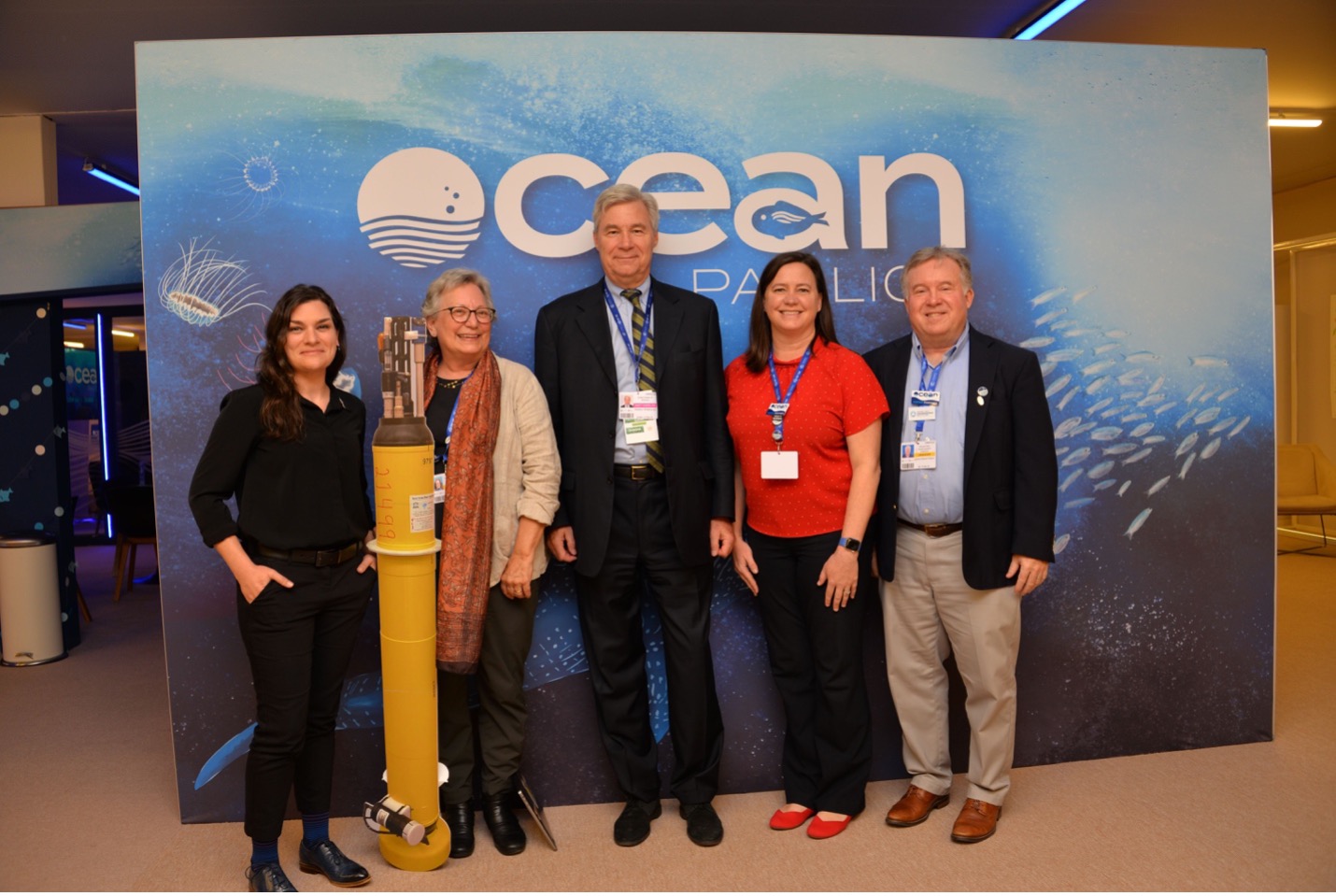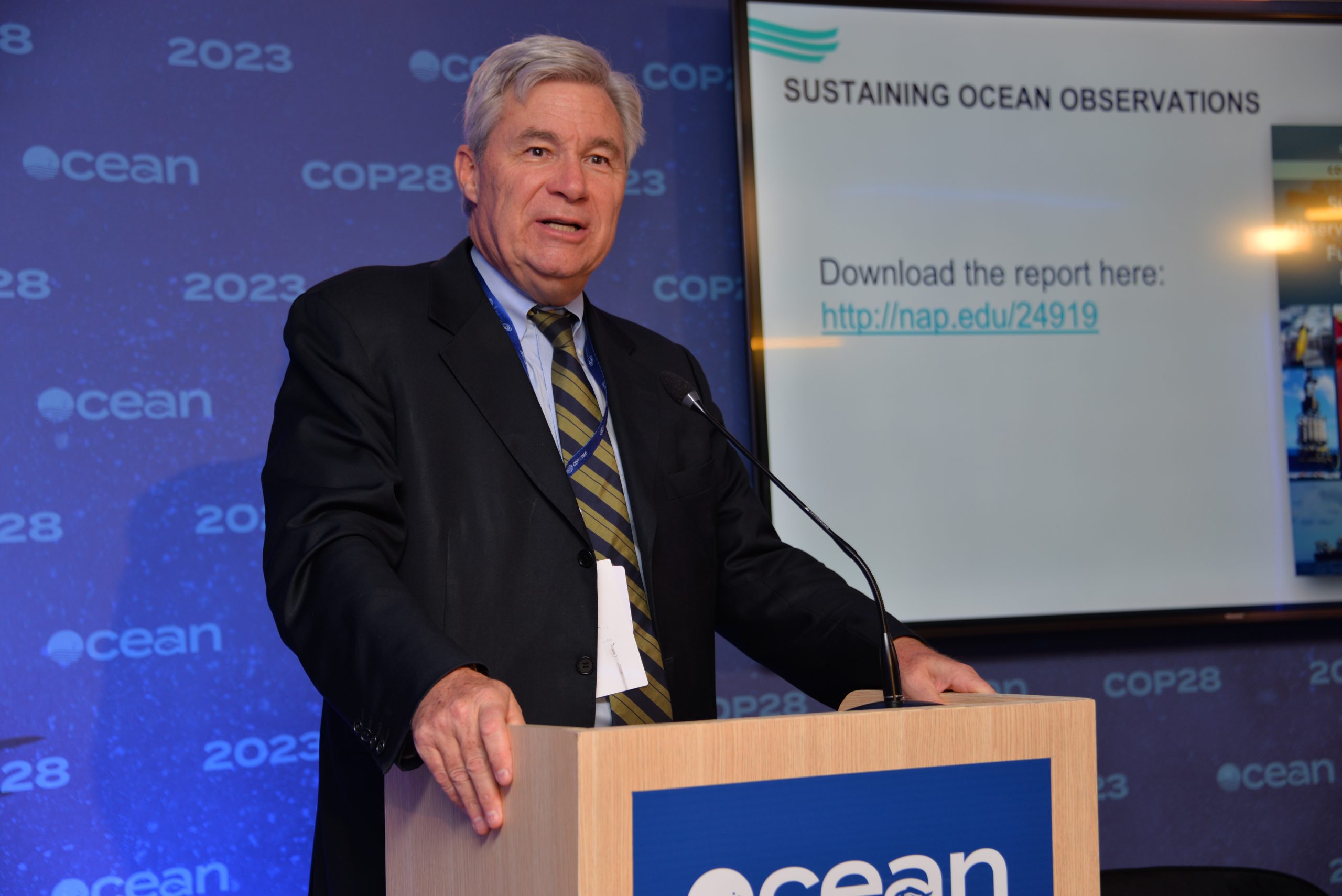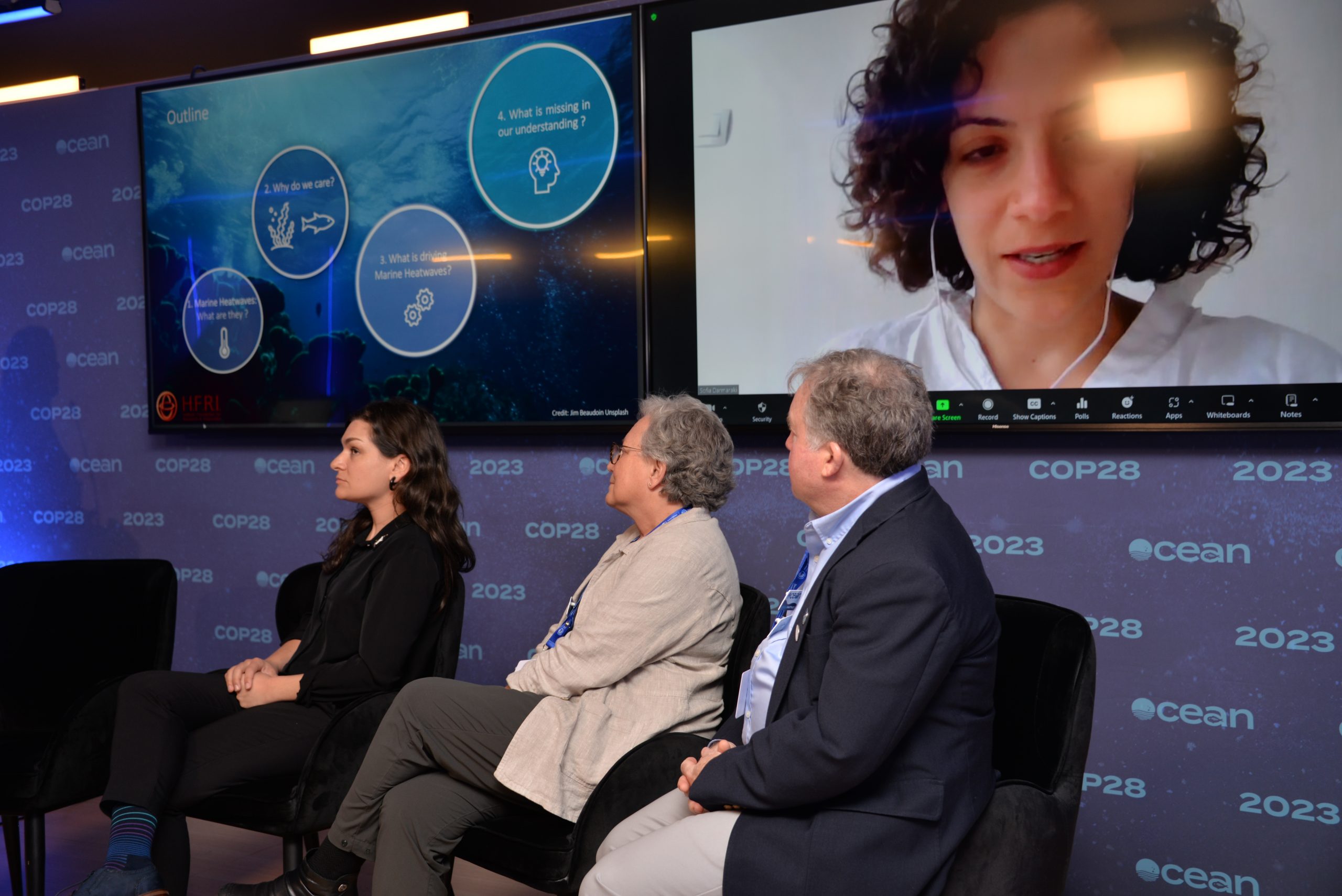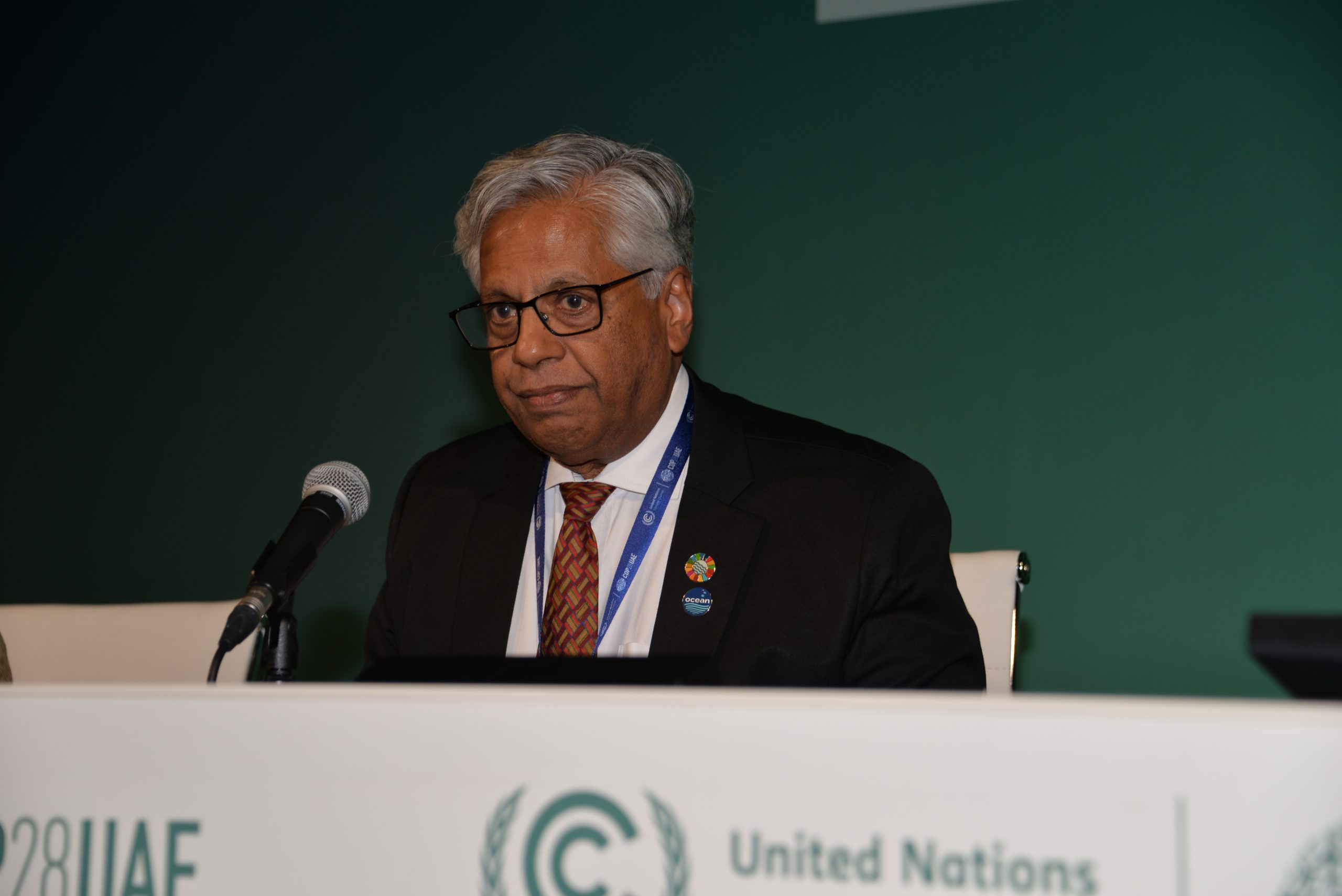Edson Showcases OOI at COP 28
Ocean Observatories Initiative (OOI) Principal investigator Jim Edson spent a week in Dubai at COP 28 (28th meeting of the United Nations Climate Change Conference) as part of the contingent representing Woods Hole Oceanographic Institution (WHOI) at the Ocean Pavilion. While at the second Ocean Pavilion, co-hosted with Scripps Institution of Oceanography, Edson participated in a panel discussion on marine heat waves and a side event on the importance of ocean observing. When not presenting, Edson met with international colleagues and helped staff the booth, answering questions and engaging with an international audience interested in the ocean’s role in addressing climate change.
“COP28 was an amazing coming together of the international community to try to figure out a way to address the many pressing climate-related problems now being experienced all over the world. It provided a platform for island nations such as Tonga, which is losing its territory in real time to sea level rise to share real life examples of climate change happening now. It was sobering and serious work, and one where finally the important role of the ocean was recognized,” he said.
“It is important that OOI be visible on the world stage so all those who can use our data to advance knowledge are aware of its existence and encouraged to use to help find answers to their own research questions,” he added.
Edson was one of five presenters at a side event held at one of COP 28’s larger auditoriums. The side event was entitled Global Ocean Observations for Equitable Knowledge-based Decision-making and included panels on ocean observing and policy. He led off the ocean observing panel with a report on OOI and how its data are advancing understanding of the changing ocean, while stressing that purposeful observation, collaboration, capacity building and stakeholder engagement are critical to address the climate challenges effectively and equitably. Edson was joined by Kilaparti Ramakrishna, Director of Marine Policy Center and Senior Advisor to the President on Ocean and Climate Policy at WHOI; Carol Anne Clayson, Director of Research Strategies and Innovation at WHOI; Lynne Talley, Distinguished Professor of Oceanography at Scripps Institution of Oceanography; and Helen Findlay, Professor at the Plymouth Marine Laboratory. The ocean policy panel included Edward Hill, Chief Executive of the National Oceanography Centre (NOC); Paula Sierra-Correa, Co-Chair of the International Oceanographic Data and Information Exchange (IODE) 2023-2025 and Research and Information Coordinator; and Sophie Seeyave, CEO of the Partnership for Observation of the Global Ocean (POGO). The side event was recorded and can be watched here.
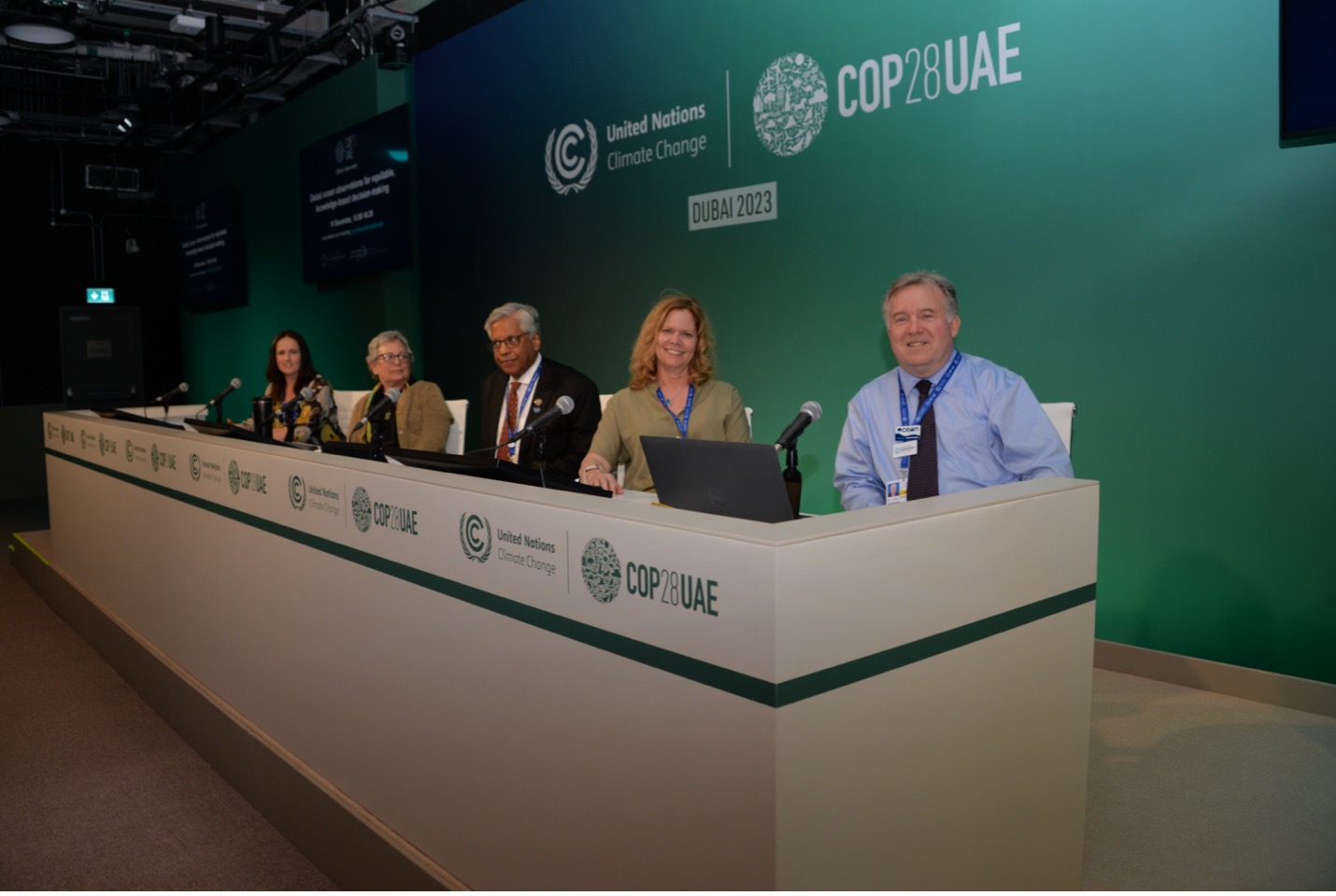
Edson also was a participant during a panel discussion at the Ocean Pavilion on marine heat waves: A Heated Case for Ocean Observations. Marine heatwaves are a significant ecological and socioeconomic threat, worldwide, and have been increasing in both duration and frequency, a trend that is likely to continue. This session focused on how sustained ocean observations can help understand and predict these phenomena so that mankind can prepare for, and mitigate, their effects.
Edson represented OOI on the panel and provided examples of how OOI data have been used to identify marine heat waves using presentations from Coastal and Global Scale Nodes Lead Scientist Al Plueddemann and Coastal Endurance Array Lead Scientist Ed Dever. Other panelists were Kelly Oskvig, Senior Program Officer, National Academies Sciences, Engineering, Medicine; Lynne Talley, Professor, Scripps Institution of Oceanography, UC San Diego; Sofia Darmaraki, Principal Investigator, Foundation for Research and Technology – Hellas, Greece; and Tammy Russell, PhD Student, Scripps Institution of Oceanography. Opening comments were provided by the Honorable Sheldon Whitehouse, US Senator from Rhode Island. The panel was recorded and can be watched here.
The importance of the ocean’s role in climate change and why it must be a key topic at COP28, and future discussions was captured in an editorial opinion piece written by Peter de Menocal, president and director of the Woods Hole Oceanographic Institution, and Margaret Leinen, vice chancellor for marine science and director of the Scripps Institution of Oceanography/University of California San Diego, co-sponsors of the COP28 Ocean Pavilion. They cite additional ocean observations as a vital component moving forward.

